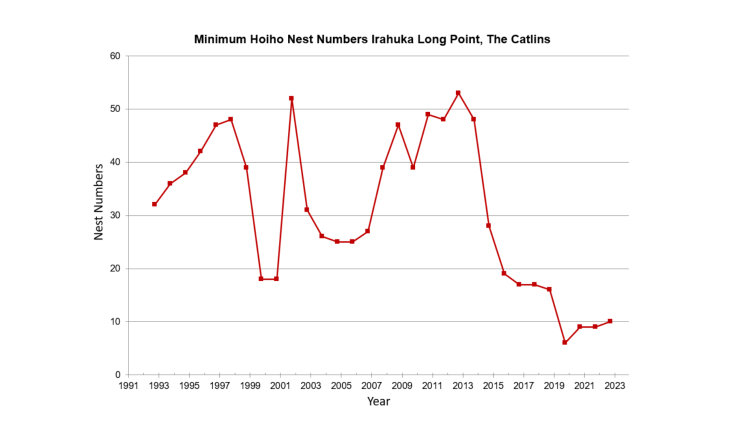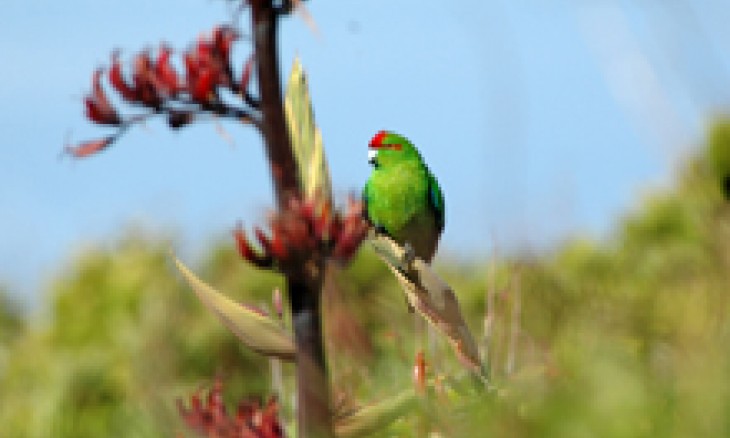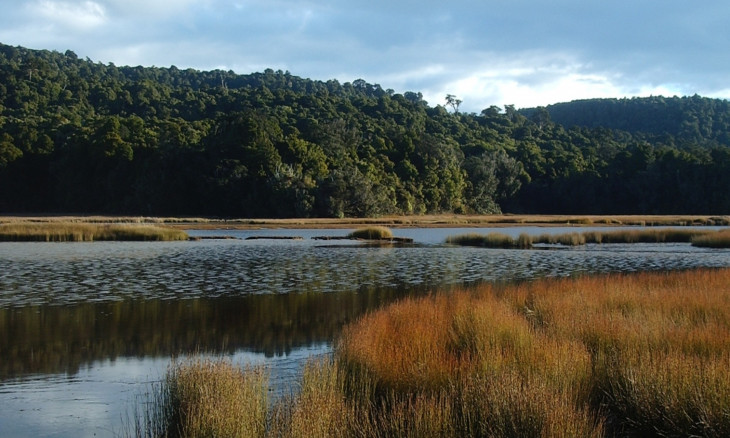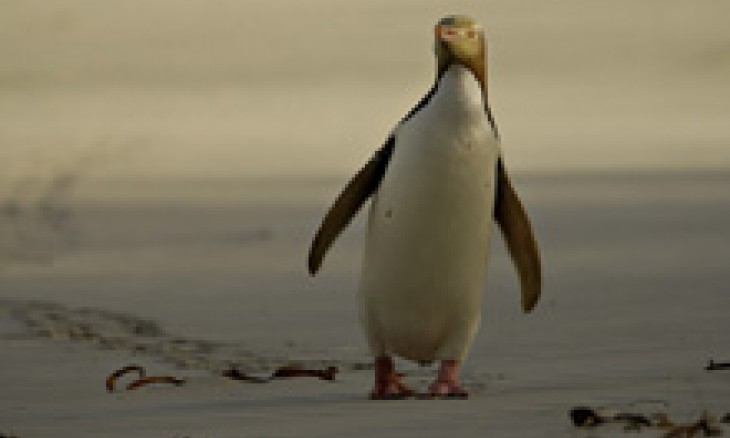
Yellow eyed penguin, Photo: Craig Mckenzie
South Otago branch helps with the protection and restoration of the unique lowland and coastal ecosystems of the southeastern part of the South Island, especially in the spectacular Catlins region.
Branch members and supporters care passionately about New Zealand’s unique natural environment and want to ensure that its taonga are protected for future generations. We highlight the living things that make The Catlins so special and explain the dangers that they face: ongoing damage caused by introduced species, habitat loss and degradation, and the looming threat of climate change.
South Otago Branch was formed in 1978, largely as a response to concerns about the widespread destruction of Catlins native forest. The fledgling branch took on an advocacy role, and also became involved in growing native plants and in yellow-eyed penguin conservation – activities that continue to this day.
The branch now undertakes a wide range of projects, and is keen to become involved with community members in predator control, plant propagation, ecological restoration, biodiversity monitoring, and just generally working for nature.
Although South Otago is one of Forest & Bird’s smallest branches, it is also one of the most active. We’ve introduced a flexible format for our monthly meetings, which are often combined with a working bee in our native plant nursery. All members are encouraged to take part, and non-members who care about the environment are always welcome to join us.
Our Projects
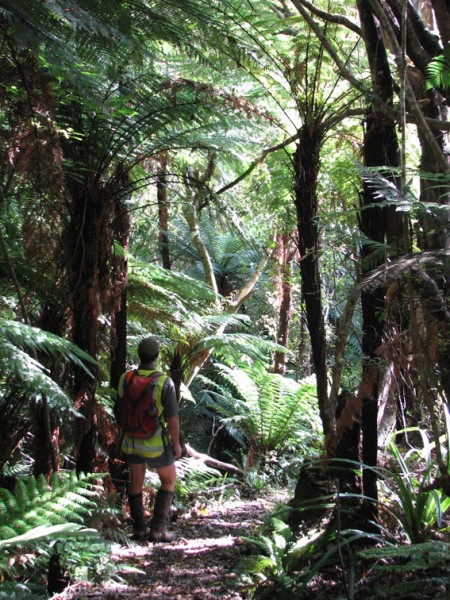
A Voice For Nature
This is a central part of everything we do. In addition to the educational opportunities embedded in our main projects, we also organise displays and field studies, talk to community groups, visit schools, have stands at local events, take part in protest rallies, write books, campaign for beach protection and marine protected areas, maintain a facebook page, talk to journalists, make submissions on environmental matters, produce newsletters and stir up politicians of all parties.
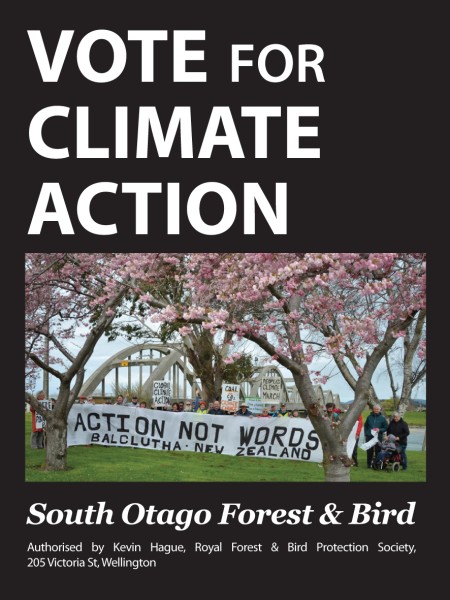
Climate Change Action
We take every opportunity to try and raise public awareness of the need for action on the climate crisis. This can involve setting up displays on practical actions we can take at a local level, urging media coverage of the issues, joining in protest events and providing input into district and regional plans. And of course we “walk the talk” with every native tree we help to plant.
Involvement with children & youth
Forest & Bird members are keen to work with young people in schools or youth groups. We can often help to provide opportunities for students to learn about plants and animals of the Catlins. Demonstrations of predator control techniques are always popular, and students enjoy becoming involved with predator tracking. We also organise family-friendly activities such as kōwhai viewing and bat walks.
Growing Native Plants
The branch has a long-standing involvement in growing native plants, both for revegetation
work and for sale to individuals and community groups. We maintain nurseries in Owaka and
Balclutha, and even have an outpost in Invercargill. We take part in planting and weeding as part of restoration projects at Otanomomo and the riparian strip at Dutton’s Bridge where we aim to "Bring back the Long Yellow Ribbon".
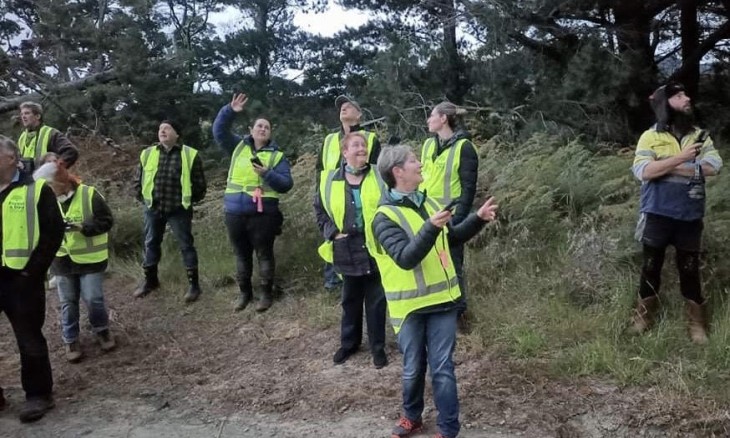
Catlins Bat Project
The Catlins is lucky to still have a pekapeka/long-tailed bat population. Volunteers monitor
where the bats forage by collecting data from passive detectors, and also actively survey six routes each January and February listening for bat calls with detectors. New volunteers always welcome. Community members can take part in bat-spotting evenings. A recent development has been “It’s Wild” – an opportunity for local artists to draw inspiration from Catlins nightlife. ~~~^..^~~~
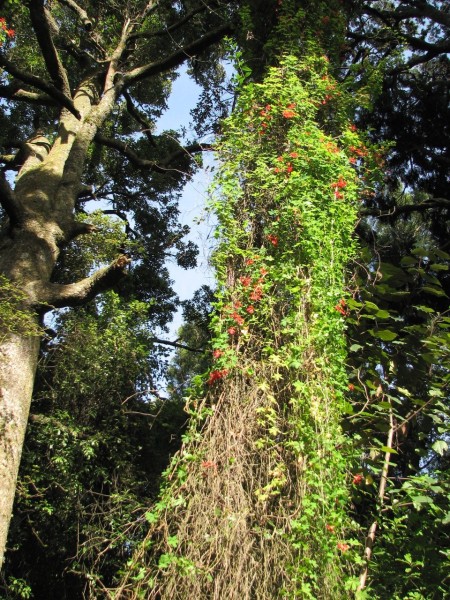
Otanomomo Scientific Reserve
Otanomomo is an important remnant of a rare type of lowland alluvial podocarp/ broadleaf forest, which once covered the Clutha River delta. The reserve suffers from serious weed infestation and from introduced predators. Branch members carry out biodiversity monitoring; predator tracking and trapping; and weed control and revegetation. DOC organises annual visits by volunteers who contribute youthful energy and enthusiasm to the project.
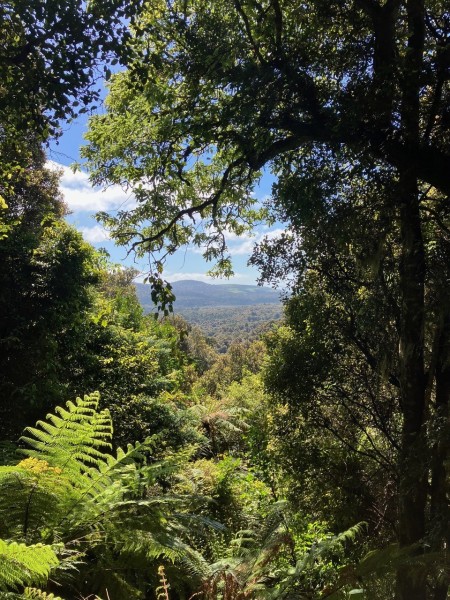
Tautuku Ecological Restoration Project
The Lenz Reserve is Forest & Bird’s largest reserve and is a central focus of the landscape scale Tautuku Ecological Restoration Project. South Otago branch is represented on the Lenz Management committee, which oversees the accommodation, as well as being responsible for maintaining the ecological values of the reserve. Members carry out biodiversity monitoring and predator control. They have also helped to develop new tracks and trapping lines.
Coastal Predator Control
Introduced mammals including rats, stoats, possums, cats, and hedgehogs are a constant threat to
our Catlins wildlife and plants. Forest & Bird volunteers regularly monitor predator traps at locations including Long Point, Cosgrove, Jack’s Bay, Pounawea, Penguin Bay, Owaka Heads and Papatowai. We also provide support with community predator trapping programmes.
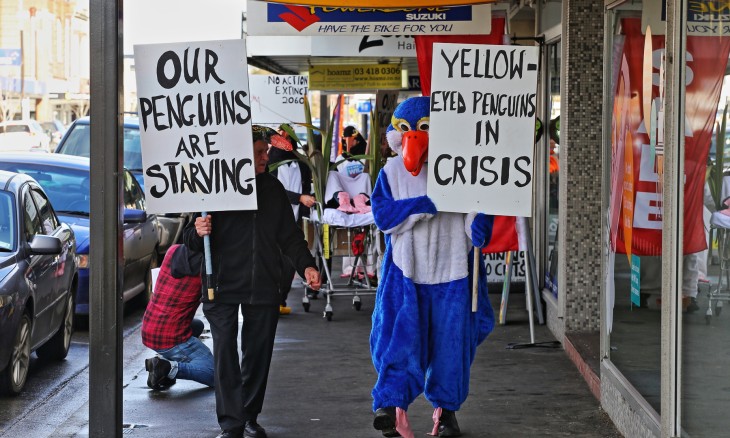
Marine issues & penguin conservation
Branch members work at Irihuka/Long Point, a Yellow-eyed Penguin Trust Reserve; and also at other penguin and sea bird habitats. They carry out monitoring, predator control and habitat restoration work. Other activities include advocacy, and involvement with community education on marine issues including the need for protected areas on beaches and out at sea.
Get involved
Click on the link below to download a brochure that outlines our activities and provides contact details.

